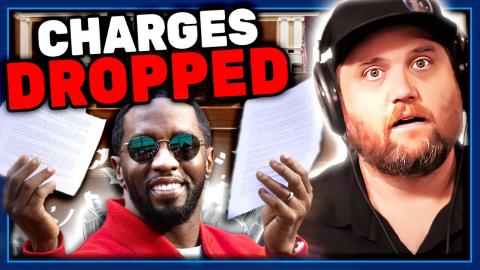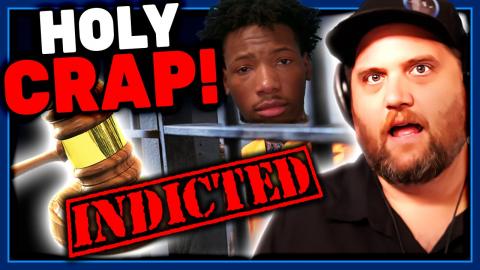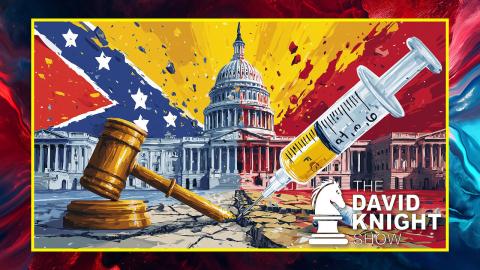Going to Prison For Criticizing the Government | Debs v. United States
I wrote a new book all about the Supreme Court. Order your copy today! http://amzn.to/45Wzhur
Patreon: https://www.patreon.com/iammrbeat
Mr. Beat's band: http://electricneedleroom.net/
Mr. Beat on Twitter: https://twitter.com/beatmastermatt
In episode 13 of Supreme Court Briefs, Eugene Debs gives a speech criticizing war and praising socialism. He promptly gets arrested for breaking the Sedition Act, and spends the next several years fighting for his freedom.
Check out cool primary sources here:
https://www.oyez.org/cases/1900-1940/249us211
Additional sources:
"A People's History of the United States" by Howard Zinn
http://www.encyclopedia.com/po....litics/encyclopedias
http://uscivilliberties.org/ca....ses/3678-debs-v-unit
Canton, Ohio
June 16, 1918
Eugene Debs, the famous labor activist and five-time Socialist Party of America presidential candidate, gives a speech, opposing World War One. He is careful with his words, for he knows that, under the Sedition Act of 1918, he could go to prison for criticizing the war or President Woodrow Wilson. In his speech, he did not specifically mention World War One nor criticize President Wilson.
Even so, Debs was pretty courageous to give this speech. I’ll have Mark Ruffalo read you a sample of it. “They have always taught and trained you to believe it to be your patriotic duty to go to war and to have yourselves slaughtered at their command. But in all the history of the world you, the people, have never had a voice in declaring war, and strange as it certainly appears, no war by any nation in any age has ever been declared by the people.”
Two weeks later, police arrested Debs and charged him with breaking the Sedition Act. In federal court, Debs argued that he was justified giving the speech due to the First Amendment. He also argued that the Sedition Act was unconstitutional. At his trial, he gave a speech to the court that one journalist said was “one of the most beautiful and moving passages in the English language.” Apparently the court wasn’t all that moved. On November 18, 1918, they found Debs guilty. The judge sentenced him to 10 years in prison and said he could never vote again.
Debs appealed the conviction to the Supreme Court. This was a time when the Court was looking at a lot of cases involving free speech. Three weeks before the Court heard arguments from Eugene Debs and his lawyers, they heard arguments for a case called Schenck v. United States. In this case, the Court ended up deciding that speech should be limited if it leads to people committing a crime. This was where the “clear and present danger” doctrine came from. Basically, if speech can directly lead to hurting the country, then the Court said it can be limited.
So the Court checked out several statements that Debs had made regarding the war. In each one of them, Debs was careful to attempt to comply with the Sedition Act of 1918 and the rest of the Espionage Act. However, the Court ended up concluding that his ultimate goal with these statements was obstructing the draft and thus hurting the war effort.
On March 10, 1919, in a unanimous opinion, the Court announced it agreed with the lower court, upholding Debs’ conviction. Justice Oliver Wendell Holmes, Jr (OliWen in the house!) gave the opinion. Holmes admitted that the speech Debs got in trouble for was mostly just about socialism. However, Holmes argued that the speech also was meant to get people fired up against American involvement in World War One to a point where people resisted the draft.
Eugene Debs went to prison on April 13, 1919. A protest of his imprisonment directly led to the May Day riots of 1919. But, I mean, in 1919 riots were totally the rage all across the country anyway.
Even in prison, Debs wouldn’t shut his mouth. He remained politically active, writing a series of columns talking trash about the prison system.
Oh yeah, and he also ran for President from prison. Really. In the election of 1920, Debs got 3.4% of the popular vote, by far the most anyone has ever got running for President from prison.
Debs. v United States was just one of several Supreme Court cases dealing with the limits of free speech that all took place right after World War One ended. It justified limited speech especially during times of crisis, like war.
On December 13, 1920, Congress got rid of the Sedition Act. A year later, the new President, Warren Harding, freed Debs from prison. However, prison had taken a toll on his health. He died less than five years later.
0



 GANG_STALKING_AUSTRLIA
GANG_STALKING_AUSTRLIA![Ep 3676b - [DS] Panics, Power Lost, Strings Cut,War Is Going Public,Cyber Attack Warning, Stage Set](https://cdn.mgtow.tv/upload/photos/2025/07/3cfa0e0cc03f1abc52a40fa2409dffed7837ac79drywtmIevCTGc9TR3VQc.video_thumb_high.jpg)
 X22 Report
X22 Report![Ep 3676b - [DS] Panics, Power Lost, Strings Cut,War Is Going Public,Cyber Attack Warning, Stage Set](https://cdn.mgtow.tv/upload/photos/2025/07/b9d6c6f7139035f69f6a6d823cfe0bc12cca59fcux2CYRvxy4jpvtpKCsF8.video_thumb_high.jpg)

 TheQuartering
TheQuartering

 Life_N_Times_of_Shane_T_Hanson
Life_N_Times_of_Shane_T_Hanson


 Nick J Fuentes
Nick J Fuentes

 TheSaltyCracker
TheSaltyCracker


 GhostxMGTOW
GhostxMGTOW


 RafidaMgtow
RafidaMgtow
 The David Knight Show
The David Knight Show
 Francis_UD
Francis_UD

Log in to comment
while i do not agree with debs standing as a socialist, he was absolutely correct in regards to his freespeech rights and is boss in pushing back against the nonsense.